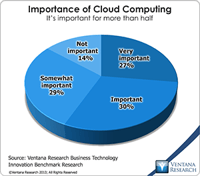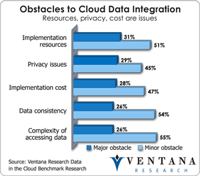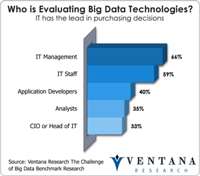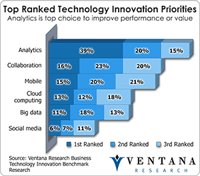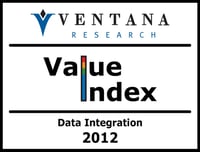At Oracle’s recent cloud computing analyst summit in sunny Palm Springs, the company’s executive team insisted that it sees clear skies for its efforts in cloud computing. The summit was led by senior executive Thomas Kurian, who runs the entire product organization and reports directly to CEO Larry Ellison. He affirmed that Oracle intends to offer the full range of cloud computing – public, private and hybrid models – to its customers and partners. As one of the world’s largest software...
Read More
Topics:
Big Data,
Database,
Microsoft,
SaaS,
Social Media,
Software as a Service,
Middleware,
Operational Performance Management (OPM),
Oracle Cloud,
Business Analytics,
Business Collaboration,
Business Intelligence,
Cloud Computing,
IBM,
Oracle,
Business Performance Management (BPM),
Customer Performance Management (CPM),
Database as a Service,
Financial Performance Management (FPM),
Information Applications (IA),
Information Management (IM),
Sales Performance Management (SPM),
Supply Chain Performance Management (SCPM),
Verizon,
Workforce Performance Management (WPM)
Businesses continue to try to increase productivity and simplify tasks in order to use their time smarter. Our recent business technology innovation research found that, when it comes to analytics, 44 percent of organizations spend the most time on data-related tasks. With lack of resources being the largest issue impeding the adoption of technology, IT must operate efficiently while getting business the data it needs on a timely basis. Scribe Solutions has a business-centric data integration...
Read More
Topics:
Microsoft,
Marketo,
On24,
Operational Performance Management (OPM),
SilverPop,
Business Intelligence,
Data Integration,
Information Management,
Business Performance Management (BPM),
Customer Performance Management (CPM),
FinancialForce,
Information Applications (IA),
Information Management (IM),
Information Optimization,
Intuit Quicken,
IT Performance Management (ITPM),
Sales Performance Management (SPM),
Scribe Software,
Xactly
Business is starting to realize that taking advantage of big data is not just technically feasible but affordable by organizations of all sizes. However, as outlined in our agenda on big data and information optimization, the technology must be engineered to the information needs of business. Hortonworks has been steadily advancing its big data technology called Hadoop and contributing its developments back to the Apache Software Foundation for a range of projects. The company performs...
Read More
Topics:
Big Data,
Microsoft,
Talend,
Teradata,
Simba,
Strata Conference,
Business Analytics,
Cloud Computing,
Hortonworks,
Informatica,
HDP,
Hive,
Information Applications (IA),
Information Management (IM),
Tez,
Strata+Hadoop
Mobile technology continues to advance weekly, with new software releases and new versions of devices. Though it has been in the headlines frequently in recent weeks, can Microsoft really change the mobile technology dynamics in the business world?
Read More
Topics:
Microsoft,
Google,
Microsoft Windows Phone,
Operational Performance Management (OPM),
Business Intelligence,
Cloud Computing,
Business Performance Management (BPM),
Customer Performance Management (CPM),
Financial Performance Management (FPM),
Information Applications (IA),
Information Management (IM),
IT Performance Management (ITPM),
Sales Performance Management (SPM),
Workforce Performance Management (WPM),
Digital Technology
Ventana Research has just released the 2012 Value Index for Data Integration, in which we evaluate the competency and maturity of vendors and products. Our firm has been researching this software category for almost a decade. Our latest benchmark research in information management found that data integration is a critical component of information management strategies, according to 55 percent of organizations. Our benchmark research on organizations using this software not only uncovers best...
Read More
Topics:
Big Data,
Master Data Management,
Microsoft,
Pentaho,
SAP,
SAS,
Social Media,
Talend,
Operational Performance Management (OPM),
SnapLogic,
Business Analytics,
Business Collaboration,
Business Mobility,
Cloud Computing,
Data Governance,
Data Integration,
Governance, Risk & Compliance (GRC),
IBM,
Informatica,
Information Builders,
Information Management,
Location Intelligence,
Oracle,
Business Performance Management (BPM),
Customer Performance Management (CPM),
Financial Performance Management (FPM),
Information Applications (IA),
Information Management (IM),
IT Performance Management (ITPM),
Sales Performance Management (SPM),
Supply Chain Performance Management (SCPM),
Syncsort,
Workforce Performance Management (WPM)
We have just released our 2012 Value Index for Sales Performance Management (SPM), in which we evaluate the competency and maturity of vendors and products. Our firm has been researching this software category for many years, and our latest benchmark research in sales performance management found many areas for improvement among sales applications in a field where many sales organizations still use outdated or insufficient applications to manage revenue generation and customer relationships.
Read More
Topics:
Microsoft,
Sales,
Salesforce.com,
SAP,
NICE Systems,
Operational Performance Management (OPM),
Business Analytics,
Business Collaboration,
Cloud Computing,
Oracle,
Business Performance Management (BPM),
CallidusCloud,
Financial Performance Management (FPM),
Sales Performance Management,
Sales Performance Management (SPM),
Synygy,
Varicent,
Xactly
Fulfilling its intention to make it easier to access and use analytics and business intelligence, IBM released its Cognos Mobile application natively for the Apple iPad. Of course IBM is not the first to release a native application for the tablet, and many might say that it is late in doing so, but in reality the market for dedicated applications on tablets is just heating up. The adoption rate of the iPad as the tablet of choice for business continues to grow, and while statistics are not yet...
Read More
Topics:
Microsoft,
Google,
Operational Performance Management (OPM),
Playbook,
RIM,
Business Analytics,
Business Collaboration,
Business Intelligence,
Business Mobility,
CIO,
IBM,
Mobility,
Business Performance Management (BPM),
Cognos,
Sales Performance Management (SPM),
Supply Chain Performance Management (SCPM),
Workforce Performance Management (WPM),
Digital Technology
Mobile computing isn’t new anymore. The capabilities of smartphones, among other things, enable businesses to run applications across an enterprise and workers to collaborate across business and social networks. In this endeavor Microsoft was early to market with its Windows CE devices that provided e-mail and Web browsing to phones. For the first years it was a low-level battle among Microsoft, RIM Blackberry and Palm as well as Nokia devices that were used mostly in Europe. In the last few...
Read More
Topics:
Microsoft,
Mobile,
Mobile Applications,
Mobile Technology,
Operational Performance Management (OPM),
Business Mobility,
Business Technology,
CIO,
Business Performance Management (BPM),
IT Performance Management (ITPM),
Digital Technology
